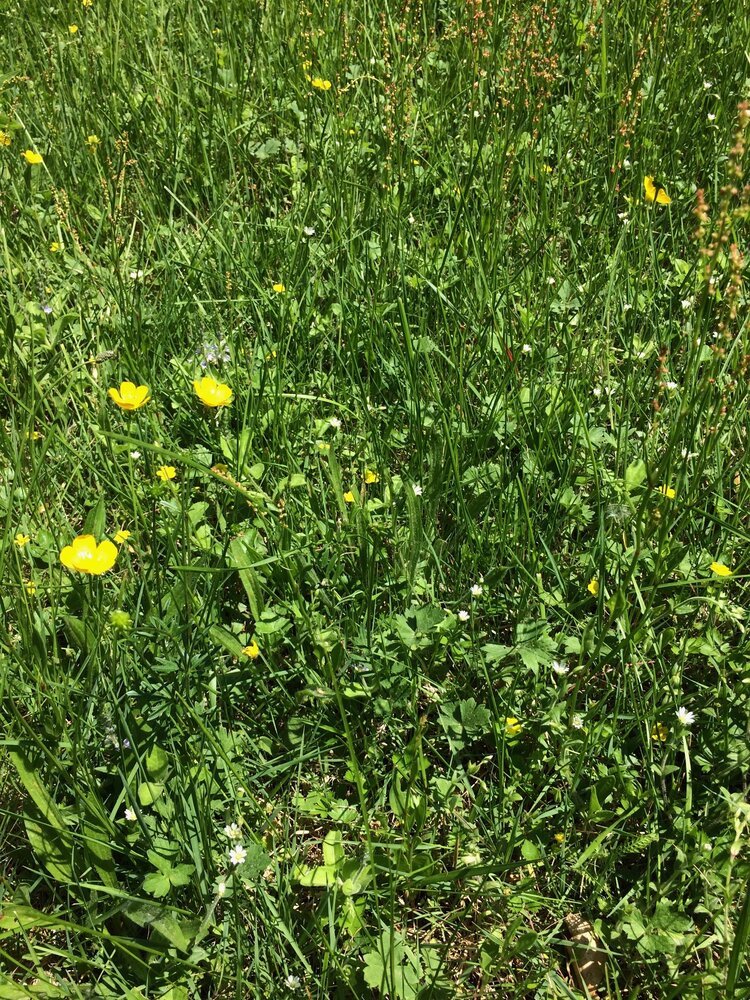Support Pollinators with No Mow May!
We need bees and other pollinators to pollinate fruit crops and keep our ecosystems healthy. Unfortunately, pollinators have experienced population declines in recent years. Bee City USA has a plan to help our native pollinators this spring: don’t mow your lawn in May! Lawns that are kept fertilized and closely mowed are ecologically impoverished. “Weeds” like clover, dandelions and many other tiny wildflowers can enrich your yard’s ecosystem.
In a recent experiment conducted in Springfield, Massachusetts, by Susannah Lerman, a research ecologist with the USDA Forest Service’s Northern Research Station, Lerman and her collaborators explored whether different lawn mowing frequencies influenced bee abundance and diversity. The team mowed herbicide-free suburban lawns at different frequencies (every week, every other week, and once every three weeks).
They found that the number of bees increased the most when lawns were mown every other week. Mowing every three weeks doubled the number of flowers in lawns (mainly dandelions and clover in the study), and it increased bee diversity—but the sheer numbers of bees wasn’t as high.
The researchers hypothesize that, while the three-week mowing cycle left more flowers in the lawn, the length of the competing turf grasses made the flowers harder for the bees to find. The study found 111 bee species—nearly a quarter of all bee species native to the area!
So if you’re not ready for the full-on meadow look, try cutting back your mowing schedule to every other week this May because this simple change can have huge benefits for pollinators. (And cuts back air pollution from lawn mowers.)
What an easy, effective way to support pollinators in Sherborn! To learn more about the study, visit BeeCity USA at https://beecityusa.org/no-mow-may/.
p.s. The photo is my lawn with lots of little wildflowers that showed up on their own and feed my local pollinators.
The “weeds” are what make my lawn good pollinator habitat.
